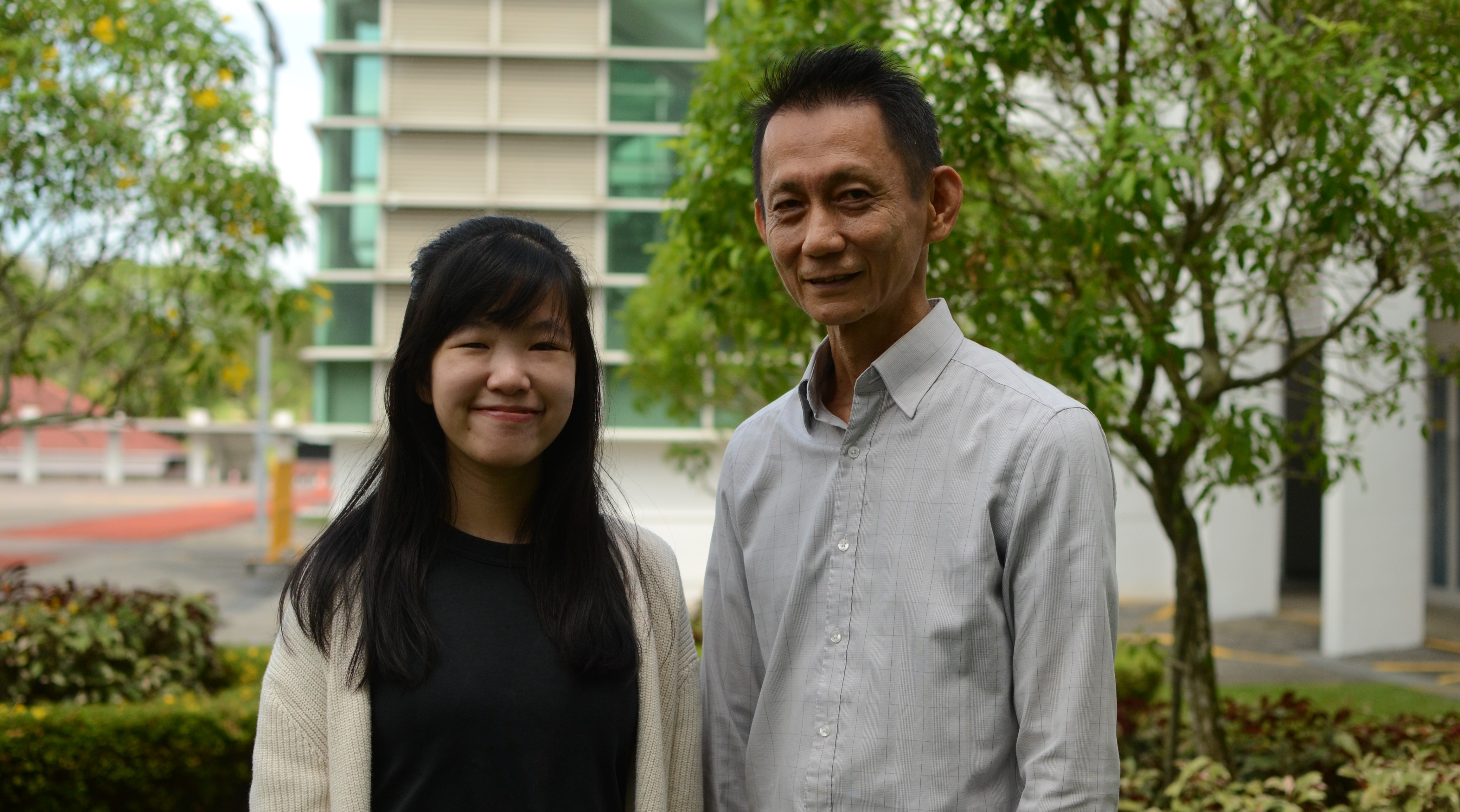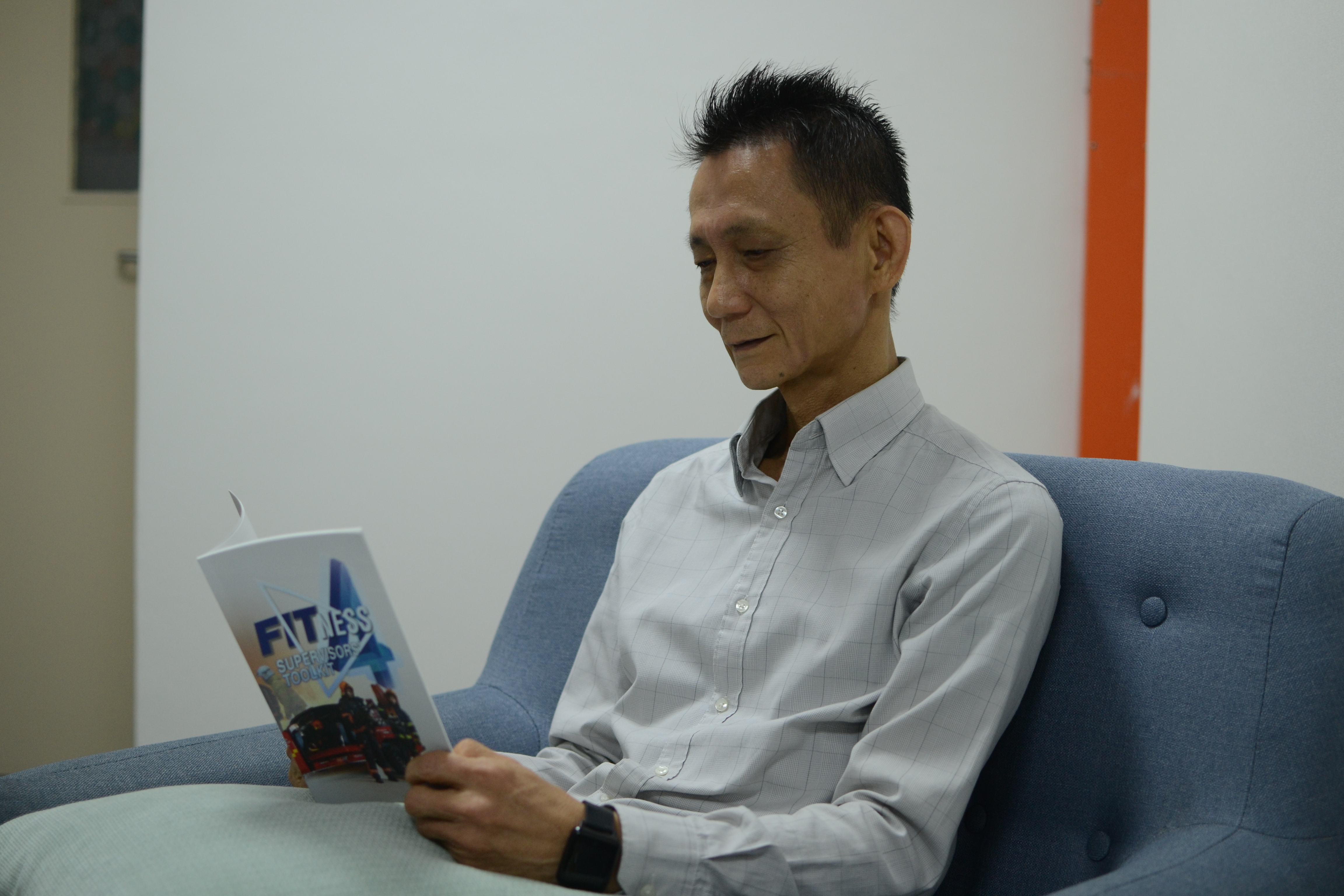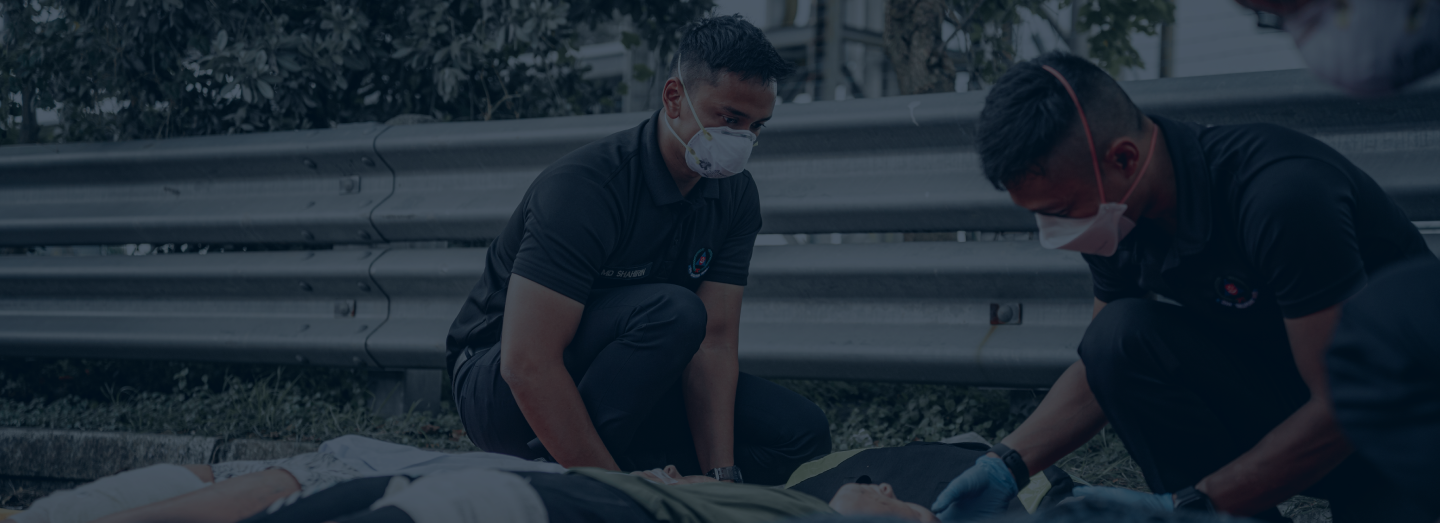Every year, thousands of Singaporean sons embark on their National Service (NS) journey. To support full-time National Servicemen (NSFs) through the different phases of NS, the SCDF has gradually built a multi-layered support structure - one that promotes mental wellbeing and encourages mutual support.
At the heart of this system are dedicated officers such as MAJ Ng Song Lim, a Senior Orientation Officer, and Home Team Specialist (HTS) Clara Cheang, a psychologist with SCDF’s Emergency Psychological Sciences Department (EPSD).

HTS Clara Cheang (left) and MAJ Ng Song Lim (right) are dedicated to supporting NSFs through their NS. PHOTO: SCDF
Throughout his 35 years with the SCDF, MAJ Song Lim has held various appointments including Platoon Commander, Head Personnel, Provost Officer, and Logistics Officer. The relationships with his NSFs and colleagues are what he values the most.
“Building rapport with the people around us is important,” he shared. “Often, it starts with just a simple conversation. Through these conversations, we can gain or offer new perspectives, helping others to approach difficult issues with a different mindset.”
MAJ Song Lim volunteered to join the SCDF Paracounsellor Scheme in 2007 to equip himself with the relevant counselling skills to better assist his colleagues who needed help. Driven by his commitment to further develop his capabilities and support those around him, he went on to pursue a Specialist Diploma in Counselling. In his current role as a Senior Orientation Officer, he continues to guide and mentor NSFs, as they begin their NS journey at the Civil Defence Academy (CDA).
Working in tandem with him is HTS Clara, who joined EPSD in 2019. Having previously worked in the special education sector, she brings a deep appreciation of individual differences to her role. Apart from one-on-one and group counselling, she conducts research and develops programmes to build psychological resilience and enhance coping abilities among SCDF officers.
“Everyone has their unique strengths, but will also face different challenges,” she said. “Our role is to create a safe space where individuals are heard and know that they would be supported through difficult times.”
During their training at CDA, the NSFs develop their physical endurance and skills proficiency. This is where MAJ Song Lim and HTS Clara come in, helping to inculcate mental and emotional strength in the NSFs, through a culture grounded in openness, trust, and mutual support.
A multi-layered approach
When SCDF NSFs first enlist into CDA, MAJ Song Lim and HTS Clara, as well as their colleagues in the Care & Wellness Office, meet them to understand their concerns and ease their transition into an unfamiliar environment.
“NS is a new experience and being away from home and family can be challenging,” said HTS Clara.
“To help our NSFs adjust, we share tips on adjusting to NS life and introduce them to different resources on wellbeing,” MAJ Song Lim added.
One of the key initiatives is the Fitness 4 Resilience Programme, which aims to strengthen NSFs in four areas - physical, mental, emotional, and social fitness.
“As these programmes encourage conversations about mental health, newly enlisted NSFs will feel more comfortable about speaking up and know who they can turn to,” HTS Clara explained.

The Fitness 4 Resilience Programme is one of the many resources that EPSD shares with NSFs to help them understand and manage their emotional wellbeing. PHOTO: SCDF
Beyond induction programmes for new enlistees, the SCDF has also enhanced mental health literacy among its officers. “Through e-learning resources and workshops, SCDF officers are trained to recognise signs of distress and provide psychological first aid to those around them,” HTS Clara shared.
At the ground level, a network of NSF Peer Supporters and Paracounsellors across SCDF forms an integral part of the support system.
“Our peer supporters, many of whom are NSFs themselves, are our eyes and ears on the ground,” HTS Clara shared. “They look out for their peers, listen to their concerns, and provide the first level of support to help them overcome their problems.”
Empowering individuals to look out for one another
While resources on mental wellbeing are readily available, both MAJ Song Lim and HTS Clara acknowledge that reaching out to those who are quietly struggling alone remains a challenge.
“Some choose to stay silent about their struggles, worrying that they may be perceived as weak or incompetent,” MAJ Song Lim noted.
“That makes it even more important to teach everyone how to recognise and assist those who are struggling in silence,” he added. “We need the help of the entire kampung - the community - to look out for each other.”
 MAJ Song Lim (above) and HTS Clara actively train CDA instructors to mentor NSFs and develop their strengths. PHOTO: SCDF
MAJ Song Lim (above) and HTS Clara actively train CDA instructors to mentor NSFs and develop their strengths. PHOTO: SCDF
The impact of this supportive culture is reflected in small but meaningful actions. MAJ Song Lim recalled an NSF who was initially hesitant to speak to anyone about his difficulties.
“After attending a few counselling sessions, the NSF found it helpful and later encouraged a bunkmate to open up about his difficulties,” MAJ Song Lim said. “When people start to look out for one another, that’s a powerful shift, and we know our efforts are making a difference.”
Nodding in agreement, HTS Clara shared, “It’s truly rewarding to see NSFs, with patience and encouragement from their peers and instructors, gradually grow in confidence and eventually step up to support others.”
When asked if there was any specific advice they would give to new enlistees, both MAJ Song Lim and HTS Clara emphasised the openness to embrace new experiences and making the extra effort to build meaningful relationships with one another.
